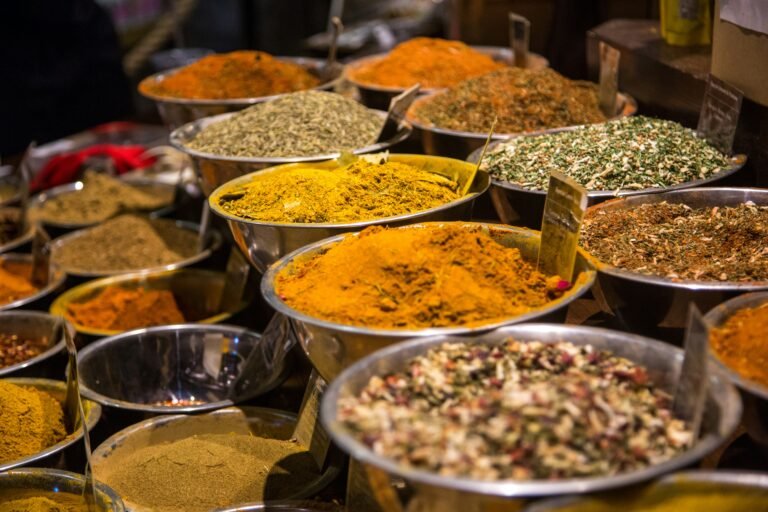Vacuum sealer machines have revolutionized the way we store food, offering an effective solution to extend the shelf life of your groceries. Whether you’re looking to save leftovers, prepare ingredients for sous vide cooking, or simply reduce food waste, a vacuum sealer can be an invaluable addition to your kitchen.
In a world where minimizing food waste is becoming increasingly important, vacuum sealers provide a practical and efficient way to keep food fresh longer. By removing air from packaging, these machines significantly slow down the process of food degradation, allowing you to enjoy your meals without the rush to consume them quickly.
This article will explore the best vacuum sealer machines for food storage, analyzing their features, types, and benefits. We’ll guide you through the selection process, provide tips for effective use, and answer common questions to help you make an informed purchase.
Understanding Vacuum Sealer Machines: What and Why?
Vacuum sealer machines are devices designed to remove air from packaging, creating a vacuum seal that preserves food by restricting the growth of bacteria and mold.
- They help in prolonging the shelf life of food items, keeping them fresh up to five times longer than traditional storage methods.
- By eliminating air, vacuum sealers prevent freezer burn, maintaining the quality and flavor of frozen foods.
- They are essential tools for sous vide cooking, ensuring ingredients are sealed securely for even cooking.
Key Features and Capabilities of Vacuum Sealers
When choosing a vacuum sealer, it’s important to understand the features and capabilities that will best suit your needs.
- Automatic vs. Manual Operation: Automatic sealers are convenient and user-friendly, while manual models offer more control over the sealing process.
- Sealing Modes: Look for machines with multiple modes for dry and moist foods, ensuring optimal sealing for different food types.
- Bag Compatibility: Consider models that work with a variety of bag types and sizes for greater versatility in food storage.
Comparing Different Types of Vacuum Sealers
Vacuum sealers come in various types, each with unique benefits and considerations.
| Feature/Type | Benefits | Best For | Considerations |
|---|---|---|---|
| External Vacuum Sealer | Easy to use, compact design | Home kitchens | Limited to sealing bags only |
| Chamber Vacuum Sealer | Handles liquids well, versatile | Commercial kitchens, sous vide | Higher upfront cost |
How to Choose the Right Vacuum Sealer for Your Needs
Selecting the right vacuum sealer involves considering factors such as frequency of use, types of food you’ll be sealing, and budget.
- Assess how often you plan to use the machine and for what purposes.
- Consider the types of food you typically store and any special requirements, like sealing liquids.
- Set a budget that balances quality with affordability, keeping in mind long-term savings on food costs.
Using Your Vacuum Sealer: Best Practices
To get the most out of your vacuum sealer, follow these best practices.
- Ensure bags are properly aligned and free of wrinkles to achieve a strong seal.
- Use the appropriate sealing mode for the type of food being stored.
- Label sealed packages with dates and contents for easy identification and rotation.
Maintaining Your Vacuum Sealer for Longevity
Regular maintenance will help extend the life of your vacuum sealer and ensure consistent performance.
- Clean the sealing area and gaskets regularly to prevent residue buildup.
- Inspect the power cord and plug for damage before each use.
- Store the machine in a dry place to avoid moisture-related issues.
Expert Tips and Recommendations
- Use pre-cut vacuum seal bags for convenience and speed in sealing.
- For liquids, freeze them in a tray before vacuum sealing to prevent spills.
- Double-seal bags for added security, especially when storing for long periods.
- Consider buying bags in bulk to save money and ensure you always have supplies on hand.
Common Questions About Best Vacuum Sealer Machines for Food Storage
Find answers to frequently asked questions about vacuum sealers.
- Q: Can vacuum sealers handle liquids?
A: Yes, chamber vacuum sealers are designed to handle liquids effectively, while external sealers may require pre-freezing. - Q: How long does vacuum-sealed food last?
A: Vacuum-sealed food can last up to 2-3 years in the freezer and several weeks in the refrigerator, depending on the food type. - Q: Are all vacuum seal bags the same?
A: No, bags vary in thickness and compatibility with different machines, so it’s important to choose the right type for your sealer. - Q: Is vacuum sealing worth the investment?
A: Yes, vacuum sealing can save money by reducing food waste and preserving food quality, making it a worthwhile investment for many households. - Q: Do vacuum sealers require special maintenance?
A: While they require minimal maintenance, regular cleaning and inspection can prolong their lifespan and ensure optimal performance.
Conclusion
Vacuum sealer machines are a valuable tool for anyone looking to enhance their food storage and preservation efforts. By understanding the different types available and their features, you can select the right machine to fit your lifestyle and needs.
We recommend considering your specific requirements and budget when choosing a vacuum sealer, as this will help you make a purchase that delivers the greatest benefits. With the right machine, you can enjoy fresh, flavorful food and reduce waste in your kitchen.
Ready to enhance your food storage? Check out this essential vacuum sealer machine to start your journey to fresher, longer-lasting meals
As an Amazon Associate I earn from qualifying purchases.
Check out this related post: Vacuum-Sealed Coffee Canisters: Keeping Coffee Fresh Longer
Explore this topic: Food Storage Solutions
Design rooms with AI Home Design
This article contains affiliate links. If you make a purchase, we may earn a commission at no extra cost to you.
Last updated on August 12, 2025



